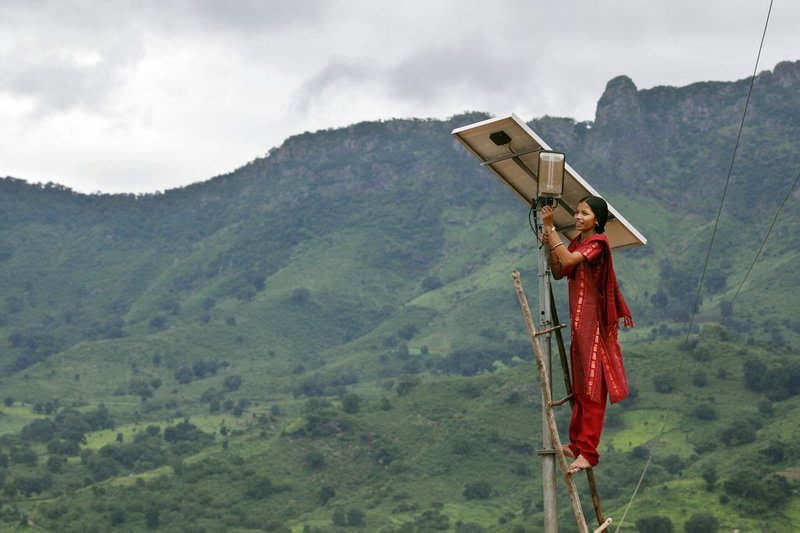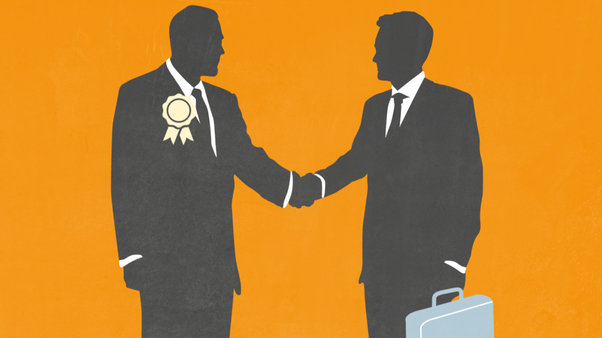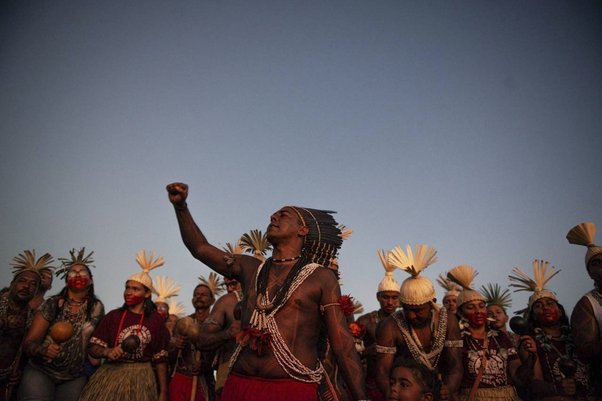Olayemi Fadahunsi, who was at the 2015 Paris Agreement negotiations as a student delegate, writes about why voices of marginalized people need to be heard in international climate change negotiations

Marginalized populations are those who have the smallest carbon footprint but experience the worst effects of climate change. Abbie Trayler-Smith / Panos Pictures / Department for International Development
Studies show that the earth will most likely warm by more than 2 degrees by the end of the century – bringing with it more hurricanes and other extreme weather, reduced air quality, and more infectious diseases spread by ticks and mosquitos, among other impacts.
This makes it even more clear that Donald Trump’s decision to withdraw the US from the Paris Agreement is not only short-sighted but completely slashes important progress made toward combatting the effects of climate change – effects that hit the most vulnerable and poorest the hardest.
As a student attending the COP21 conference in Paris in December 2015, I witnessed first-hand just how marginalized populations are disproportionately impacted yet rarely included at the table when policies are being negotiated.
Marginalized populations are those who have the smallest carbon footprint, but due to their socioeconomic status, geographic location, gender, and age, they are the ones who experience the worst effects of climate change.
These communities are not waiting around for heads of state and other leaders to fix this problem; they are taking action now.
Take my home country of Nigeria. Currently, millions of people living in the northern region are on the brink of famine, struggling to have one meal a day. The drought in addition to the ongoing conflict has devastated their living conditions. In this case, climate change causes droughts to be more frequent and severe which has negatively impacted the lives of the Nigerian people.
Indigenous populations – who are especially reliant on their land for day-to-day survival – are leading the way with initiatives aimed at quelling the environmental disasters they suffer as a result of global warming and extreme weather conditions. A 17 year old from Samoa explained to me what life is like with given uncertainty over of her home’s future:
“Climate change is a day to day thing for people in Samoa. As a teenager growing up it is my reality to see cyclones, flash floods, general flooding in the area we live in, droughts and all sorts of extreme weather we see every day and it’s our reality. And out of this COP I would like to see a legally binding agreement and my wish for the world is that everyone can concentrate on 1.5 because that is the only way our pacific islands can survive”.
And yet, despite the discrepancy in how different groups and countries are affected by climate change, previous negotiations and policy decisions have excluded NGOs, activists, civil society and those most vulnerable to the effects of climate change. These groups, while present, are not allowed an equal opportunity to contribute to policy decisions, yet business trade associations and industries with other conflicts of interest have the ability to influence discussions at COP.
The common rhetoric surrounding climate change implies that the effects of climate change exclusively impacts developing nations, when in reality developed nations are far from exempt. It is often the marginalized communities in developed nations who also suffer from its uneven impacts. We all remember that Hurricane Katrina completely devastated and changed the lives of many Americans, but the people who were hurt the most were people of color, women, children, and the poor.
Trump’s decision to withdraw from the Paris Agreement with no alternative solutions to offer was a major disappointment. He painted the financing of climate change initiatives as an economic burden and a poor investment of US dollars, despite the fact that there is a strong economic case for investing in clean energy, which many countries are picking up on. The US is not exempt from the realities or responsibilities of climate change, regardless of how much Trump and his administration try to depict climate action as a choice rather than a priority.
Even with these setbacks, all hope is not lost. Marginalized leaders from frontline communities are not waiting for Trump or other leaders to get on board. From communities in the Pacific Islands implementing adaptation training programs, to indigenous communities in Mexico creating educational programs to raise awareness of climate change among youth, these local initiatives are forward-thinking and necessary. Although these projects may be small, their ideas are big.
In future conferences and policy discussions, it is essential for the voices of marginalized communities to be considered. Their wealth of knowledge and personal experience with climate change is invaluable to the global efforts to truly reach climate justice.
Olayemi Fadahunsi


